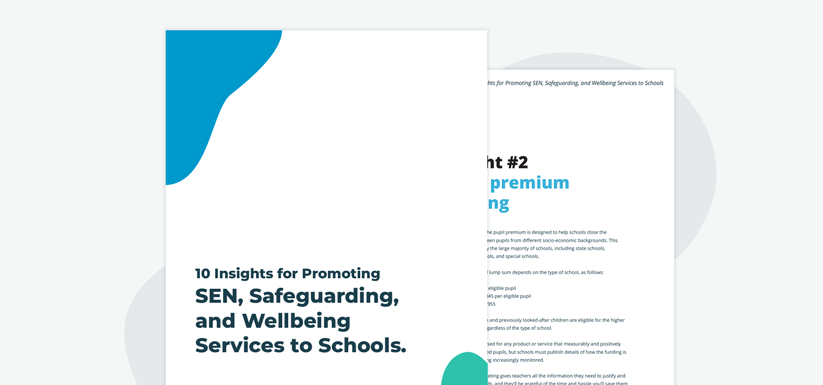Criticism From Teachers Sucks. But The Alternative Is Worse.
Criticism From Teachers Sucks. But The Alternative Is Worse.
In this blog, John shares why you should not only embrace negative feedback from teachers, but actively encourage it!
In this blog, John shares why you should not only embrace negative feedback from teachers, but actively encourage it!

Nobody likes getting negative feedback but I have to admit that I’m especially rubbish at dealing with criticism. I don’t lash out or leap into an impassioned defence of myself, I sulk. I withdraw into my shell and shut down the conversation completely in a bid to avoid further injury.
I remain in this state for 48 hours, before progressing into a state of moderate anger that can last for a full week. After that, I decide that there’s just no point in anything anymore, I might as well give up entirely because my hard work and considerable expertise clearly isn’t as valued as it should be. It’s only 4-5 months down the line that I’m able to review the criticism I’ve received with anything like a cool head.
Oh well, at least I’m self-aware enough to recognise how pathetic it is!
But enough about me. I’m sure that there are many sellers to schools out there that react in a similar – albeit less childish – way when they receive criticism of their product or service from a teacher, and what I want to do with this blog is to show you why you should embrace this criticism and be grateful for it.
How the heck am I going to do that? Well, my idea is to show you what might have happened if you hadn’t received that criticism.
What a world without negative feedback looks like…
Every single week I speak to somebody who has been driven to the point of near-madness because a school or teacher has ignored them after initially showing a high level of interest in their product or service.
Let me be clear, I don’t mean that they’ve become irritated or annoyed, I mean that they genuinely cannot sleep at night through wondering why a seemingly hot lead has all of a sudden disappeared completely off radar.
It’s not even necessarily that they harbor hopes that the teacher’s interest can be re-awoken, it’s just that they need closure. They need to know why. They’ve invested so much effort in understanding the school’s requirements, building the relationship with the teacher, piecing together the proposal and following it up, that they just need to know where they went wrong. They need to understand at what point the lead was lost because they can’t see how they could have possibly done anything more.
As a result we’ve created strategies for several clients this year where the sole purpose was simply to get this closure, to inspire lost leads to come back with the reason that they weren’t able to go ahead.
Until they’ve received this feedback, however negative or hurtful it might be, these clients simply cannot stop having nightmares about how many other leads are being lost through this, as yet unknown, hole in their proposition.
Now, back to you…
The people I’ve just been talking about would give their right arm to be in your shoes. They long for the type of honest and freely-given criticism that so injures you.
They want to know why a teacher or school has decided the product or service is not right for them because its that feedback that is going to help them engage and convince all those other potential leads out there that share the same reservations but ignore them instead of providing that feedback.
I know from my own personal experience that for every lead that comes back with a reason they don’t want to go ahead with an order, there are probably another 3 or 4 that just ignore you entirely. It’s quite likely that some or all of these leads share the same reservations so this feedback is absolutely invaluable.
It could be that the feedback highlights a shortcoming in your proposition that you weren’t aware of, but more likely it highlights a weakness in the way that you have marketed the product or service, which you can now address with future campaigns.
A key aspect of a successful marketing to schools campaign is pre-empting the objections that teachers are likely to have when considering your message. Ensuring your marketing overcomes those objections is one of the most powerful ways to improve your engagement and response rates.
So, getting one teacher to reply to you with honest feedback is useful. Getting ten teachers replying to you with negative feedback is pure gold. Think about how you can encourage these kinds of responses with your marketing and the emails with which you follow-up leads. It could be the key to taking your business to the next level in 2019.
Tags
Emailing Teachers
How to Sell to Schools
Marketing to Schools
Marketing to Teachers
Selling to Schools
Similar Articles


Marketing SEN, Safeguarding, and Wellbeing Services
Learn 10 game-changing insights especially for school SEN, Safeguarding, and Wellbeing providers to enhance your edu-marketing email campaigns.


VIDEO: Teachers' Views on Wellbeing in Schools
In our latest video on chapter 4 of the State of Selling to Schools 2023 report - Wellbeing in Schools, we reveal insights on how you can support the wellbeing of teachers and students.


Expert marketing to schools support and solutions
Expert marketing to schools solutions
Email Head Teachers, Teachers, and Staff Inboxes
Email teachers and staff inboxes
Sell More to UK and Global Schools and Colleges
Sell more to schools and colleges

































